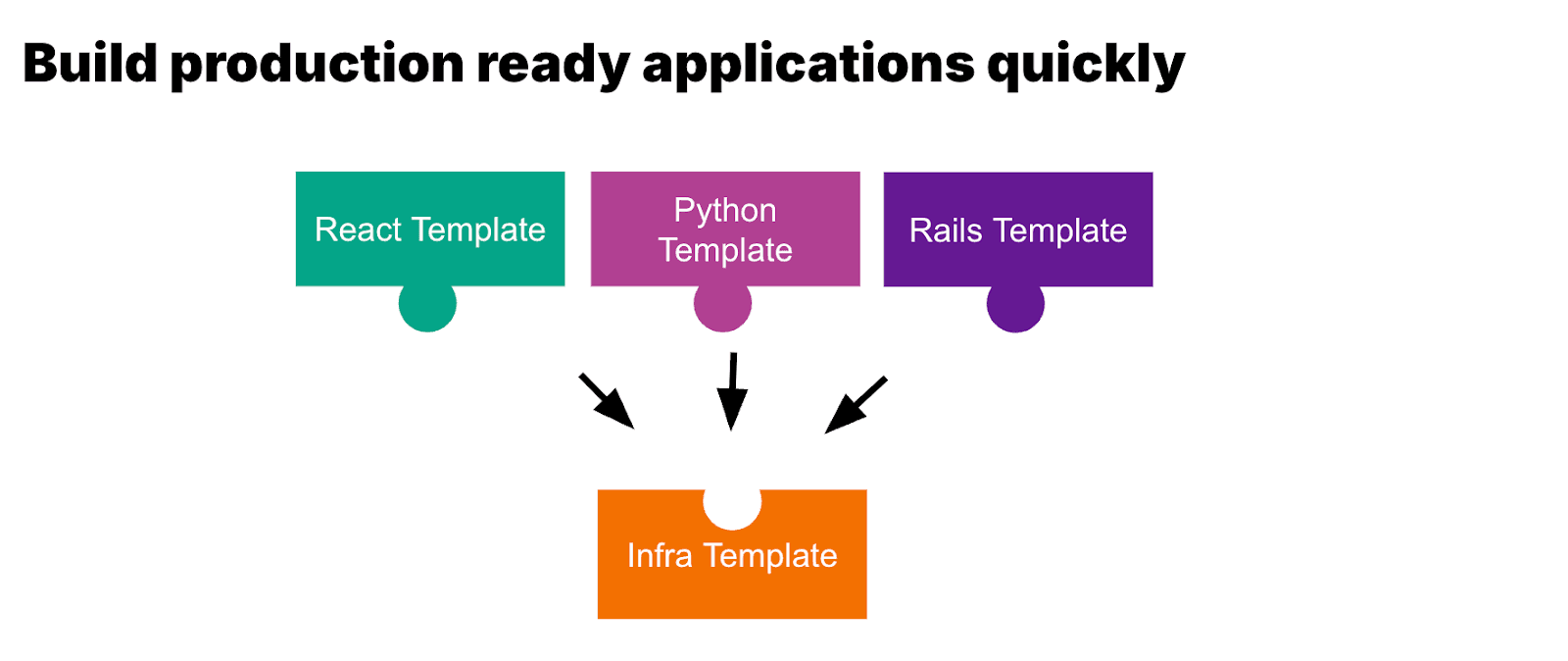Strata
Open source tools for every layer of government service delivery
Building an excellent digital service or modernizing a legacy system doesn’t have to take months, exhaust your budget, or lock you into proprietary software.
Nava is combining our best practices and lessons learned from over a decade of successful delivery to create Strata, a gold-standard target architecture and suite of open source tools that gives government agencies everything they need to run a modern service.
If you are tired of unresponsive, poorly performing products or systems that block you from being fast and effective, then Strata is right for you.
Building on a decade of proven delivery
Nava’s most experienced engineers designed and developed Strata. It has been proven at scale, in production, across multiple federal and state programs.
Strata’s modularity and reusability enables any government or vendor team to deliver at the speed of SaaS development with the flexibility of custom development. No matter your starting point, Strata’s innovative architecture helps you rapidly deliver against the needs of your users, stakeholders, program, and third parties.
With Strata, you’ll:
Save months of time
Inherit best practices and patterns to avoid mistakes or duplicative rework
Maintain full control over your long-term roadmap and vendor ecosystem
What Strata includes:
Strata currently includes the following three categories of tools. Use them together or separately, depending on your needs and goals.

Infrastructure templates: A set of templates for quickly setting up production-ready, cloud-native infrastructure

Application templates: A set of templates to quickly begin building user-facing and backend applications

Software Development Kit: A suite of composable software development tools for building human-centered digital services applications
VP of Program Delivery Marvin McLain on the basics of Strata
Deliver without compromise
Strata is the only solution on the market that’s proven at scale across multiple federal and state programs, and fully aligns with government’s long-term, no-lock-in technology and vendor ecosystem interests.
Strata | COTS Products | SaaS Products | Custom Development | |
|---|---|---|---|---|
Roadmap control | Yes | Sometimes | No | Yes |
Own your data and code | Yes | Sometimes | No | Yes |
Architectural flexibility | Yes | No | Sometimes | Sometimes |
Ready-to-use | Yes | Yes | Yes | No |
Upfront cost | $0 | $$ | $ | $$ |
Long-term cost | $0 | $$$ | $$$ | $$ |
Vendor agnostic | Yes | No | No | Sometimes |
To date, Strata has helped save thousands of hours standing up modern government services. You can use Strata for any government program, including but not limited to:
Paid family and medical leave
Unemployment insurance
Integrated eligibility & enrollment: Medicaid, SNAP, TANF, etc.
Child care assistance
Student financial aid
Permitting and licensing
Grant applications
Passport adjudication
For example, Strata helped save approximately 17 weeks of time setting up production-ready infrastructure for Minnesota’s Paid Leave program, and 10 weeks of time building the claims dashboard application programming interface (API) for New Jersey’s unemployment insurance program, enabling agency staff to more easily adjudicate claims.
Security and Compliance
With Strata, teams can confidently deploy and operate systems that are secure, compliant, and ready for production on day one. Each component uses modern DevSecOps practices, integrating automated security scanning, infrastructure-as-code policies, and continuous monitoring from the start. The platform also aligns with federal and state security frameworks to speed up Authority to Operate (ATO) processes and approvals at your agency.
Strata’s codebases are transparent and continuously reviewed by a growing community of contributors who can identify and fix vulnerabilities faster than in closed systems. This openness fosters accountability, peer review, and shared improvement, helping agencies benefit from collective security expertise and hardening over time.
We continue to improve on and evolve Strata to adapt to the changing security and compliance environment. As your system matures and scales, you can inherit zero cost updates from Strata’s core maintainers and contributors to stay aligned with emerging standards and best practices.
Infrastructure templates
Infrastructure templates
Nava’s Amazon Web Services (AWS) and Azure infrastructure templates provide everything development teams need to quickly set up secure and production-ready cloud infrastructure, CI/CD pipelines, automated testing, and project tools.
The infrastructure templates adhere to the NIST SP 800-53 (FISMA Moderate) security standards and include the protections teams need to build HIPAA-compliant systems. You can expand and customize the templates to meet the tougher security and operational rules in IRS Publication 1075 for managing Federal Tax Information.
Infrastructure template features
Team workflow templates: Establish high-quality, opinionated team norms that streamline the full developer lifecycle, from making architecture decisions and setting up local environments to managing deployments and collaborating on pull requests.
Account-level infrastructure foundation: Manage Terraform state securely, ensure safe team operations through resource locking, and control CI/CD access to cloud resources.
Application infrastructure: Deploy core web application components, including a container image repository, load balancer, web service, and database.
Continuous integration for infrastructure: Automate code linting, validation, and security compliance checks.
Continuous deployment: Run GitHub Actions pipelines, release scripts, and deploy continuously to cloud environments in AWS or Azure.
Documentation: Reference extensive documentation on system architecture design and implementation to develop team expertise and use as an external reference for security audits. Leverage existing runbooks to operate production systems self-sufficiently.
Monitoring and alerts: Track golden signals (latency, errors), integrate with incident management, and extend with custom metrics.
Networking: Provision a secure, compliance-ready virtual private cloud tailored to your application.
Background jobs: Run event-driven and scheduled workloads such as ETL, cron tasks, or other async processing.
Secrets management: Automatically generate and rotate application secrets like encryption keys and API tokens.
Custom domains and HTTPS: Provision SSL/TLS certificates and serve traffic securely under your own domain.
Preview environments: Spin up temporary environments for each code change, allowing reviewers to test and verify in real time.

Diagram illustrating how the Strata templates can work together.
Application templates
Application templates
Nava’s application templates provide developers with everything they need to build best-in-class user-facing and backend applications.
The Flask template
Great for: Building backend API layers
Tech stack: Python, Flask
Flask template features
Ready-to-use API: Rapidly develop APIs off of an existing API template with example endpoints, secure API key authentication, and automated generation of an OpenAPI specification.
Database integration: Leverage built-in database functionality with a PostgreSQL client, secure passwordless database authentication, connection pooling, high-performance SQL utilities, and database migrations with Alembic.
Code quality tools: Check for errors, enforce consistent style, and keep your code clean.
Rich logging options: Use structured logs for integrating with monitoring services while optimizing for human readability during local development.
Data export: Export your data to CSV files and save them to S3 for batch integrations.
Developer tools and configuration: Be productive from day one with a streamlined development setup that runs seamlessly both locally and in Docker, complete with simple config management.
The Next.js template
Great for: Developing user-facing web applications
Tech stack: Typescript, React, Next.js
Next.js template features
A flexible React setup: Build apps that can run on the server, load as static pages, or use a mix of both.
Built-in testing support: Check your code with TypeScript and test your React components.
Customizable styles and components: Build best-in-class apps on the U.S. Web Design System (USWDS).
Code quality tools: Check for errors, enforce consistent style, and keep your code clean.
An interactive Storybook library: Preview, test, and refine parts of your interface in isolation.
The Rails template
Great for: Building full-stack, or frontend and backend, web applications
Tech stack: Ruby, Ruby on Rails, Typescript
Rails template features
The Rails template includes a fully functioning website that integrates with USWDS. This includes:
Customizable form builder, styles, and components: Build best-in-class forms and experiences on USWDS.
Multilingual support: Localize your application for any audience.
Access control: Authenticate users and keep your application secure.
Code quality tools: Check for errors, enforce consistent style, and keep your code clean.
Testing framework: Make sure your system is running reliably.
Integrations with cloud provider services, including:
Database services supporting PostgreSQL
Document storage using AWS S3 or Azure Storage
Email notifications using AWS SES or Azure Communication Services
Authentication using Cognito or Azure Active Directory
Software Development Kit
Software Development Kit
The Software Development Kit (SDK) will help development teams create best-in-class case management systems, including multi-page intake applications and case management workflows.
The SDK is modular, allowing teams to integrate the components they need with existing systems. This means teams can use the SDK to build new systems from scratch or to plug new features into existing systems.
Accelerating implementation
Strata’s SDK provides a functionally complete system out-of-the-box. We also offer program-specific modules with default data schemas, application flows, and business processes. Teams can extend the modules to adjust or augment functionality in order to meet business needs.
Bridging silos
Our vision is for the SDK to be a modular system that helps you work toward a state of interoperability. That’s why we built the SDK to support a wide range of digital government services, including integrated benefit applications. SDK enables incremental implementation and data-sharing with partners, which will help you navigate the challenges commonly found in multi-program scenarios. With the SDK, you’ll work toward an integrated, cross-program system that eases the process of transforming complex and brittle legacy architecture.
What you can build
The SDK contains pre-built components that solve for common case management challenges, including:
Data modeler: Determine how information is stored, organized, and connected in the database.
Multi-page form builder: Develop online forms without having to code them from scratch.
Business process modeler: Visually model how workflows or processes run, step-by-step.
Task management system: Create, assign, and track work so teams can stay organized.
Policy as code rules engine: Automatically turn rules and policies into code, and then check them automatically.
Read more about our SDK components on Github.
Case studies
The platform has helped save:
Join the open source community
You’ll have the opportunity to collaborate with engineers, architects, designers, and subject matter experts in building mission-critical software. Strata welcomes your feedback and GitHub pull requests to continuously improve for the benefit of government services, programs, and agencies. If you are excited about solving meaningful problems alongside the modern GovTech community, get involved below.
